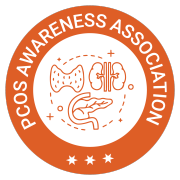

PCOS - Polycystic ovarian syndrome, it is defined as health problem that can affect a woman's Menstrual cycle, Ability to have children, Hormones and Appearance. The cause of PCOS is unknown; Researchers think that several factors, including genetics, could play a role. Women with PCOS are more likely to have a mother or sister with PCOS. The research studies suggest insulin hormone may be linked to PCOS. Many women with PCOS have too much insulin in their bodies because they have problems in utilizing it, this excess insulin appears to increase production of androgen. In general symptoms of PCOS can vary from woman to woman. Some of the symptoms of PCOS include: Infertility (not able to get pregnant) because of not ovulating. Increased hair growth on the face, chest, stomach, back, thumbs, or toes Cysts on the ovaries Acne, oily skin, or dandruff Weight gain or obesity, usually with extra weight around the waist Male-pattern baldness or thinning hair Anxiety or depression Women with PCOS are also at risk for endometrial cancer. There is no single test to diagnose PCOS But doctor suggest the following tests: Medical history, Physical exam, Pelvic exam, Blood tests, vaginal ultrasound (sonogram). PCOS is associated with our OMICS journal Endocrinology & Metabolic Syndrome